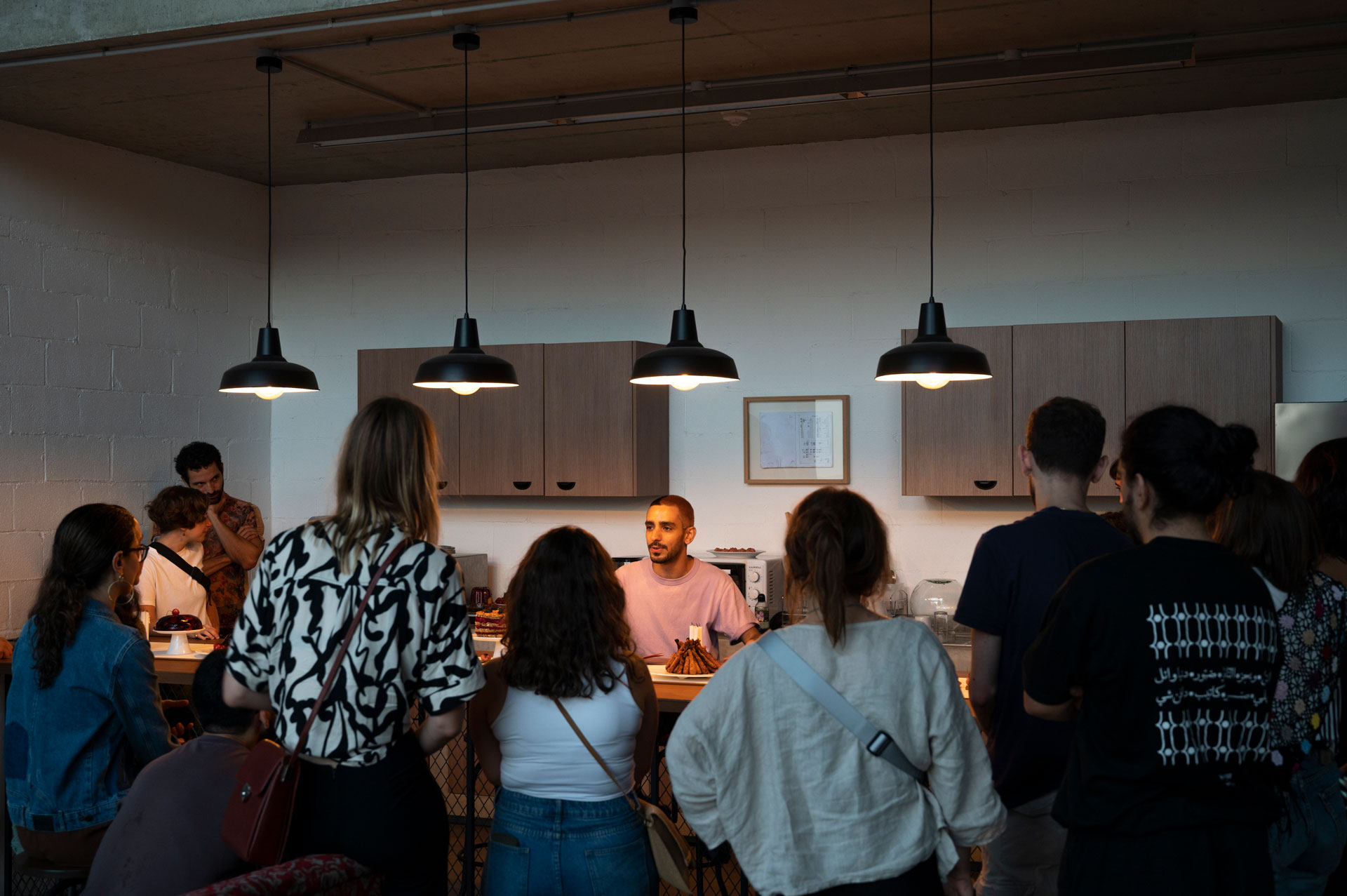Deconstructing Contemporary Palates
2022 - ongoingDifferent installaments of the work were exhibited or performed in:
◍ Castel Coucou, Institut Francais, Sept 2022
◍ Middle East Institute , “MEI Climate Exhibition”, Dec 2022
◍ Saradar Resideny program, 2022-23
◍ Alserkal Arts Foundation, Nov 2023
The research reflects on the formation of the contemporary palate by delving into the deconstructions and reconstructions of food and farming culture. Adopting a rhizomatic approach, the culinary presentation puts forward a series of vignettes related to the forces of domination, colonization, and commercialization of the food system. These vignettes, combining narratives and images, reflect on the political-economic and cultural forces that have contributed to altering our relationship with food, and ultimately, our taste palates.
With the support of Alserkal Arts Foundation, the research is now documented in a Zine publication.

Get a copy from Alserkal Arts Foundation or download the digital copy here

Myth of Mulberry
This section recounts key moments in the trajectory of the food and farming system. It begins with the example of monoculture farming, a market-driven phenomenon that has long been proven to be incompatible with nature. Through the story of the mulberry and silkworm farming, I show how monocultures played a role in famine and occupation in Lebanon.


Reframing olive oil
The next section discusses industrialization and the rendering of food as a mere commodity. Here, I trace the story of olive oil, ending on how the humble ingredient has been monetized and co-opted as a dietary trend.The two stories highlight instances of foreign powers manipulating ingredients to advance their own country’s agendas, while simultaneously exploiting other countries for cheap labor.

State of food
This section focuses on the relationship between food and the state, as I see the nation-state as the main vehicle through which influences on food culture have been enacted. Food ceased to be a regional or place-based phenomenon and began to be tied to the concept of a ‘nation’ as a whole. The narratives put forward are selections from a collection of scholarship engaged with around the topic, all of which feature the state as the main actor behind changes in the food system



